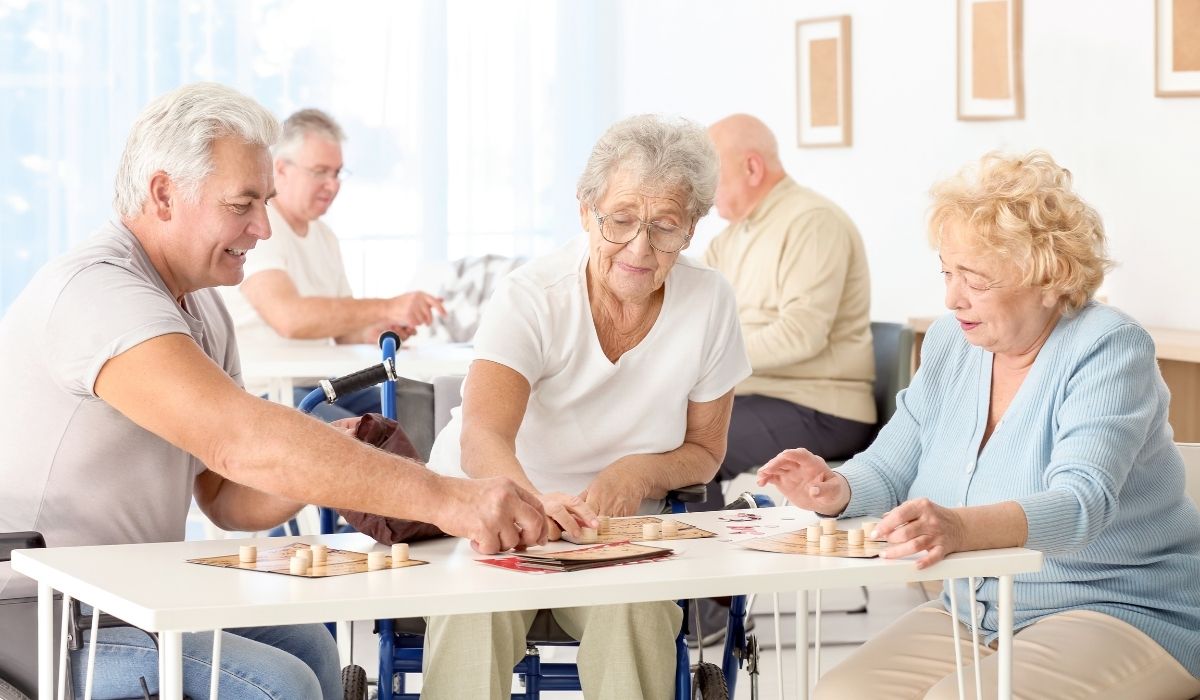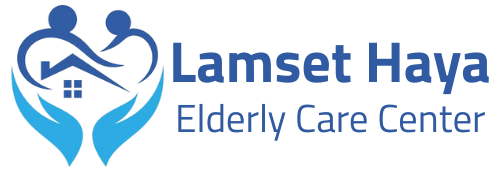
As our global population ages, the challenge and privilege of providing excellent medical and health care to seniors have taken on unprecedented importance. This is not merely a matter of treating the ailments that come with old age; it is a holistic endeavor to preserve dignity, foster independence, and ensure a high quality of life for our elders. Excellent geriatric health care is built upon a philosophy that recognizes the unique complexities of aging—a multi-faceted approach that goes beyond the traditional clinic visit to encompass prevention, chronic disease management, psychological well-being, and a supportive social environment. By understanding and implementing the key pillars of this care, we can empower seniors to lead fulfilling and comfortable lives in their later years.
The imperative for specialized senior health care stems from the fundamental physiological, medical, and social shifts that occur as we age. The human body is a marvel of resilience, but the passage of time introduces a series of predictable changes that necessitate a more nuanced and attentive approach to medicine. Geriatric care, therefore, is not simply a subset of adult medicine; it is a distinct discipline that treats the whole person, not just the disease. The goal is to maximize function and well-being, rather than simply extending life at all costs.
The Foundations of Geriatric Health Care: A Paradigm Shift
To appreciate the importance of specialized health care for seniors, one must first understand the unique health challenges they face. These are not isolated issues but rather an intricate web of interconnected factors that require a comprehensive and multidisciplinary response.
1. The Burden of Multiple Chronic Diseases and Polypharmacy
A defining characteristic of senior health is the prevalence of comorbidity, where an individual suffers from two or more chronic diseases simultaneously. It is not uncommon for a senior to manage diabetes, hypertension, heart disease, arthritis, and chronic obstructive pulmonary disease (COPD) all at once. This requires complex management and care coordination among multiple medical specialists—a cardiologist for heart disease, an endocrinologist for diabetes, and a rheumatologist for arthritis. Navigating these various appointments, treatment plans, and medication regimens can be overwhelming for both the senior and their family. The term polypharmacy, which refers to the concurrent use of multiple medications, is a direct consequence of this. Each new medication, while intended to treat a specific condition, carries the risk of side effects and potentially dangerous drug-drug interactions. A prescribing cascade can occur, where a side effect from one drug is mistaken for a new medical condition and treated with yet another drug, creating a vicious cycle.
2. Normal Physiological Changes and Altered Responses
Aging is accompanied by a series of predictable physiological changes that fundamentally alter how the body functions. The cardiovascular system becomes less efficient, leading to a greater risk of heart disease. Renal function declines, which means the kidneys are less effective at filtering waste and metabolizing drugs, necessitating dosage adjustments to prevent toxicity. The nervous system slows, affecting reflexes, balance, and cognitive processing, which in turn increases the risk of falls—a leading cause of injury and mortality in the elderly. The musculoskeletal system weakens, bones become more brittle, and joints lose their flexibility, leading to conditions like osteoporosis and osteoarthritis. A geriatrician understands these age-related changes and can anticipate how a senior’s body will respond to treatments, tailoring interventions to minimize risk and maximize benefit.
3. Cognitive and Functional Decline
While not a universal experience, cognitive and functional decline is a significant concern for many seniors. Normal aging may lead to minor changes in memory and processing speed, but conditions like dementia and Alzheimer’s disease represent a more profound and progressive loss of cognitive function. This decline severely impacts a senior’s ability to manage their own health, from understanding complex medication instructions to remembering doctor’s appointments or even basic self-care tasks. The medical team must be adept at assessing cognitive function and developing strategies that support the senior’s independence while ensuring their safety. This often involves close collaboration with family caregivers and a focus on simplifying daily routines and health management.
4. The Critical Role of Psychological and Social Needs
The psychological and social well-being of a senior is inextricably linked to their physical health. Loneliness, depression, and social isolation are not merely emotional issues; they are serious health risks that can weaken the immune system, increase the risk of cardiovascular disease, and accelerate cognitive decline. The loss of a spouse, friends, and social roles, coupled with physical limitations that make it difficult to leave the home, can lead to a profound sense of isolation. Excellent geriatric care recognizes this connection and includes regular mental health assessments and a focus on promoting social engagement. It acknowledges that a life of dignity is one where a person feels connected, valued, and purpose-driven, not just free from physical disease.
The Six Pillars of Excellent Medical and Health Care for Seniors
Building on this foundational understanding, excellent senior care is structured around a series of integrated pillars. These are not separate silos but components of a cohesive, patient-centered strategy.
Pillar 1: Preventive Care and Regular Check-ups
The adage “an ounce of prevention is worth a pound of cure” is particularly true for seniors. Proactive health management is far more effective and less invasive than reactive treatment.
- Regular Medical Examinations: A cornerstone of preventive care is a consistent schedule of comprehensive physical examinations. These visits are not just for addressing current complaints but for the early detection of potential problems. A doctor may perform a physical exam, order routine blood work (to check for anemia, kidney function, and blood glucose levels), and screen for common age-related conditions.
- Vaccinations: Vaccinations are a simple yet powerful tool for preventing serious illness. Seniors are particularly vulnerable to infections, and recommended vaccines for influenza, pneumonia (pneumococcal), tetanus, and shingles are crucial. For example, the flu vaccine can prevent not only the viral infection but also the dangerous secondary bacterial pneumonia that often follows in older adults.
- Cancer Screenings: While the benefits of cancer screening can change with age and overall health status, a doctor’s recommendation for screenings such as breast, colon, and prostate cancer is an essential component of a senior’s health plan. The decision to screen is a personalized one, balancing the potential benefits of early detection against the risks of the screening process and treatment.
- Bone Health Screening: Osteoporosis, a condition characterized by a loss of bone density, is a major concern for seniors, especially women, as it significantly increases the risk of fractures. Regular bone density scans (DEXA scans) can detect this condition early, allowing for interventions like calcium and vitamin D supplementation and medication to prevent debilitating injuries.
- Regular Vision and Hearing Tests: The gradual decline in vision and hearing is often overlooked but can have a dramatic impact on a senior’s quality of life and safety. Impaired vision increases the risk of falls and makes it difficult to read medication labels. Hearing loss can lead to social isolation and cognitive decline. Regular tests and the provision of glasses or hearing aids are simple yet profound interventions.
- Risk Factor Control: Proactively managing key risk factors is paramount. This includes maintaining blood sugar levels for diabetics, controlling blood pressure for those with hypertension, and managing cholesterol to prevent cardiovascular disease. These measures are the first line of defense against the most common and devastating chronic complications.
Pillar 2: Efficient Chronic Disease Management
For seniors with existing chronic conditions, the focus shifts from cure to management. The goal is to maintain the highest possible quality of life and function despite the presence of disease.
- Individualized Treatment Plans: A personalized approach is critical. A doctor works with the senior and their family to create a treatment plan that considers all health conditions, a senior’s lifestyle, and their personal preferences. This plan is not a one-size-fits-all solution but a dynamic strategy that is regularly reviewed and adjusted.
- Care Coordination: A senior’s medical team is often an interdisciplinary one, consisting of a primary care physician, specialists, nurses, physical therapists, and social workers. Effective care coordination ensures that all members of this team are communicating and working from a unified plan. This prevents conflicting treatments, avoids redundant tests, and ensures that all aspects of the senior’s health are being addressed.
- Pain Management: Chronic pain from conditions like arthritis or nerve damage can severely limit a senior’s mobility and independence. An effective pain management strategy, which may include a combination of medication, physical therapy, and other therapies, is crucial for improving quality of life. The goal is to alleviate pain without the side effects of heavy narcotics, which can increase the risk of falls and cognitive impairment.
- Nutritional Therapy: Malnutrition is a silent but serious problem in the elderly. A lack of appetite, difficulty chewing or swallowing, or the side effects of medication can lead to nutritional deficiencies. A nutritionist or dietitian plays a vital role in creating a dietary plan that supports chronic disease management (e.g., a low-sodium diet for hypertension) and ensures the senior is receiving the necessary vitamins and nutrients.
Pillar 3: Safe and Effective Medication Management

Medication management is perhaps one of the most complex and critical aspects of geriatric care. The average senior takes multiple prescription drugs, as well as over-the-counter medications and supplements. This is where the risk of side effects and interactions is at its peak.
- Regular Medication Review: A doctor or a clinical pharmacist should conduct a thorough review of all medications at every opportunity. This involves creating a single, comprehensive list that includes every drug, supplement, and herbal remedy the senior is taking. This process helps to identify and eliminate unnecessary or redundant medications and to simplify the regimen wherever possible. The principle of deprescribing, or the planned and supervised reduction of medication, is a key component of this review.
- Simplification: The more complex a medication schedule is, the less likely a senior is to adhere to it. A doctor can simplify the regimen by prescribing drugs that can be taken once a day or by using combination pills.
- Education and Awareness: A clear explanation of each medication, its purpose, how and when to take it, and its potential side effects is essential. This information should be communicated to both the senior and their caregivers. This education empowers everyone involved to be active participants in the senior’s health care.
- Using Pill Organizers and Technological Aids: Simple tools like pill organizers, which sort medications by day and time, can dramatically improve adherence. More advanced technological aids, such as automated pill dispensers that beep and dispense the correct dose at the right time, are also becoming increasingly common.
Pillar 4: Psychological and Cognitive Care
A senior’s mental and emotional state is a powerful predictor of their physical health. Excellent care, therefore, extends beyond the physical body to include the mind and spirit.
- Mental Health Assessment: Regular screening for signs of depression, anxiety, and loneliness is a standard component of geriatric care. A doctor may use simple questionnaires or engage in a conversation to assess a senior’s mood and emotional well-being. If issues are identified, the doctor can provide referrals to a therapist, psychiatrist, or social support groups.
- Cognitive Assessment: Regular cognitive assessments are essential for monitoring changes in memory and cognitive abilities. Simple screening tools like the Mini-Mental State Exam (MMSE) or the Montreal Cognitive Assessment (MoCA) can provide a baseline and help detect the early signs of dementia or Alzheimer’s. Early detection is key to implementing supportive strategies and treatment plans.
- Mental and Social Stimulation: A senior’s brain needs exercise just as much as their body. Encouraging activities that stimulate the brain, such as reading, puzzles, crosswords, and learning new skills, can help maintain cognitive function. Fostering social connections is equally important. This may involve encouraging the senior to join a club, volunteer, attend community events, or simply maintain regular contact with friends and family.
Pillar 5: Promoting Mobility and Environmental Safety
Falls are a pervasive threat to the independence of seniors. Excellent health care is proactive in reducing fall risks and promoting a safe environment.
- Exercise Programs: Physical activity, even at a low intensity, is a powerful tool for maintaining health and mobility. Doctors can recommend light exercises suitable for a senior’s health condition, such as walking, water aerobics, or Tai Chi. Tai Chi, in particular, has been shown to improve balance and reduce fall risk. Strength training exercises can help combat sarcopenia, the age-related loss of muscle mass.
- Fall Risk Assessment: A physician can perform a comprehensive fall risk assessment, which includes evaluating balance, gait, vision, and medication side effects. This assessment is often accompanied by a recommendation for a home safety check.
- Environmental Modifications: A home safety check involves identifying and eliminating fall hazards. This can include removing loose rugs, ensuring adequate lighting, installing grab bars in bathrooms, and adding handrails on stairs. Simple modifications can make a profound difference in a senior’s safety and ability to move independently.
- Mobility Aids: For seniors who require assistance with mobility, the proper use of aids like walkers, canes, or wheelchairs is crucial. A physical therapist can ensure that the aid is correctly fitted and that the senior knows how to use it safely and effectively.
Pillar 6: Coordination with Caregivers and Family
The final and perhaps most crucial pillar is the recognition that excellent geriatric care is a partnership. It is a three-way street involving the medical team, the senior, and the caregivers and family members who provide daily support.
- Effective Communication: The medical team must maintain open and regular communication with caregivers and family. This includes providing clear information about the senior’s condition, treatment plans, and any changes in health status.
- Caregiver Training: Many caregivers are family members who have no formal medical training. Providing them with the knowledge and skills necessary to deliver daily care is essential. This can include training on safe lifting techniques, wound care, and how to recognize and respond to signs of a medical emergency.
- Caregiver Support: The task of caring for an aging loved one can be physically and emotionally exhausting, leading to caregiver burnout. Excellent health care acknowledges this and provides resources and support for caregivers, such as support groups, psychological counseling, and information on respite care services, which allow caregivers to take a much-needed break. Supporting the caregiver is a direct way of supporting the senior.
In conclusion, excellent medical and health care for seniors is a complex, compassionate, and holistic undertaking. It is a philosophy of care that respects the unique challenges of aging and is built upon a foundation of proactive prevention, coordinated chronic disease management, meticulous medication review, and robust support for both the senior and their caregivers. By embracing these principles, we not only extend the lives of our elders but also enrich them, ensuring they can live with dignity, purpose, and a sense of belonging. The future of a dignified life in old age rests on our commitment to this comprehensive model of care.
Sources and References
Don’t let life’s busy schedule prevent you from giving back to those who gave you everything.
At Lamset Hayah Elderly Care Home, we provide your loved ones with the care, dignity, and unforgettable human warmth they deserve.
Contact us today to take the first step toward your family’s peace of mind and your own.
Visit us to discover for yourself how we turn care into a fulfilling life.
